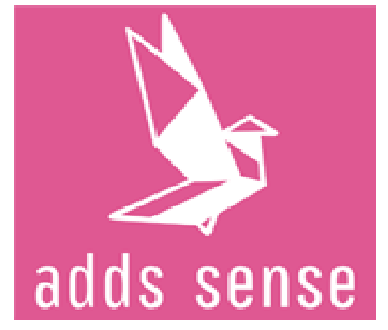A Cost Breakdown of NEBOSH Course Fee for Safety Professionals
The NEBOSH (National Examination Board in Occupational Safety and Health) certification is highly regarded across various industries, especially in fields where safety plays a critical role. For professionals looking to enhance their expertise in occupational health and safety, the NEBOSH Course Fee can be a significant consideration. Understanding the costs involved and how they break down can help safety professionals make informed decisions when enrolling in a NEBOSH course.
In this article, we’ll provide a detailed cost breakdown of the NEBOSH Course Fee for safety professionals, taking into account various factors such as course types, additional expenses, and ways to maximize the return on investment. We’ll also explore the variations in NEBOSH Course Fees to help prospective students understand what to expect and how they can best prepare financially.
Understanding the NEBOSH Course Types
NEBOSH offers a wide range of qualifications, each aimed at different levels of safety knowledge. The NEBOSH Course Fee will vary depending on the type of qualification pursued. Below are the most common NEBOSH qualifications and their associated fees:
1. NEBOSH General Certificate in Occupational Health and Safety
This course is one of the most sought-after NEBOSH qualifications and is ideal for those looking to gain a strong foundation in workplace safety. It typically covers key topics such as risk assessment, hazard control, and safety management systems.
- Course Fee: The NEBOSH Course Fee for the General Certificate can range from $1,200 to $2,500, depending on the provider and learning format (classroom, online, or distance learning).
- Additional Costs: Students may also incur additional expenses, such as exam fees (around $100–$200) and study materials (around $100–$300).
2. NEBOSH International Diploma
For professionals seeking to take their safety expertise to a higher level, the NEBOSH International Diploma offers in-depth knowledge and skills. It is more advanced than the General Certificate and prepares students for senior safety management roles.
- Course Fee: The NEBOSH Course Fees for the International Diploma can be higher, typically ranging from $4,500 to $7,000, depending on the provider and study format.
- Additional Costs: As with the General Certificate, exam fees (around $250 per exam) and study materials (around $200–$400) are additional expenses.
3. NEBOSH Environmental Management Certificate
This course focuses on environmental management systems and is aimed at professionals looking to develop their skills in sustainable practices and environmental health.
- Course Fee: The NEBOSH Course Fee for this certificate usually falls between $1,000 and $2,000.
- Additional Costs: Like other NEBOSH qualifications, additional fees for exams and materials can range from $150 to $300.
Factors Affecting the NEBOSH Course Fee
The cost of enrolling in a NEBOSH course depends on several factors. Let’s examine the key factors that can impact NEBOSH Course Fees:
1. Course Delivery Format
NEBOSH courses are offered in various formats, including classroom learning, online courses, and distance learning. Each format has its own pricing structure:
- Classroom Learning: This tends to be the most expensive option due to the need for physical infrastructure and instructors. It’s ideal for those who prefer face-to-face interaction and guidance.
- Online Courses: Online courses are generally more affordable than classroom options and offer the convenience of studying at one’s own pace. The NEBOSH Course Fee for online courses is usually lower.
- Distance Learning: This self-study option tends to be the most affordable but requires discipline and self-motivation. Course fees are generally lower, but students may need to purchase additional study materials.
2. Location
The geographical location of the course provider can influence the NEBOSH Course Fee. Courses offered in regions with a high cost of living, such as the UK or the US, tend to be more expensive than those offered in developing countries. However, many providers offer online courses that allow students to access affordable education regardless of location.
3. Provider Reputation
Highly reputable training providers with extensive experience in delivering NEBOSH courses may charge higher fees than lesser-known providers. The quality of instruction, student support, and pass rates often justify the higher price. Safety professionals should consider the provider’s reputation when assessing the NEBOSH Course Fees.
Additional Expenses to Consider
While the NEBOSH Course Fee is a significant portion of the total cost, there are additional expenses that students should take into account:
1. Exam Fees
Most NEBOSH qualifications require students to pass one or more exams to achieve certification. Exam fees are typically not included in the base NEBOSH Course Fee and can range from $100 to $250 per exam. It’s important to check whether the exam fees are included in the overall price when enrolling in a course.
2. Study Materials
Although some providers include study materials in the course fee, others may require students to purchase textbooks, guides, and other learning resources separately. These can add an additional $100 to $300 to the total cost of the course.
3. Travel and Accommodation
For those attending classroom-based courses, travel and accommodation expenses can add significantly to the overall cost. Professionals enrolling in courses away from their home location should budget for these additional costs.
Maximizing Return on Investment
While the NEBOSH Course Fees may seem steep, the return on investment can be substantial for safety professionals. A NEBOSH qualification opens doors to higher-paying jobs and senior roles in occupational safety and health. Here are some tips to maximize the value of your investment:
1. Choose the Right Course Level
Before enrolling in a NEBOSH course, professionals should assess their career goals and choose the appropriate course level. If you’re just starting out in the safety industry, the General Certificate might be the best choice. More experienced professionals may benefit from pursuing the International Diploma.
2. Consider Online Learning
If you’re looking to save on the NEBOSH Course Fee, opting for an online course could be a cost-effective option. Online courses tend to be cheaper than classroom learning while still offering the same curriculum and certification.
3. Look for Discounts
Some training providers offer discounts or scholarships for students, particularly those enrolling in multiple courses. Group enrollments may also reduce costs. Keep an eye out for promotional offers that can lower the NEBOSH Course Fee.
Conclusion
Understanding the breakdown of the NEBOSH Course Fee is essential for safety professionals looking to invest in their education and career. While the fees vary based on factors such as the course type, provider, and delivery format, it’s important to remember that the benefits of holding a NEBOSH qualification can far outweigh the costs.
By carefully considering the course options, delivery formats, and potential additional expenses, safety professionals can ensure they get the best value for their money and advance their careers in occupational health and safety. With the right approach, the investment in a NEBOSH qualification will open doors to new job opportunities and enhanced professional credibility.






